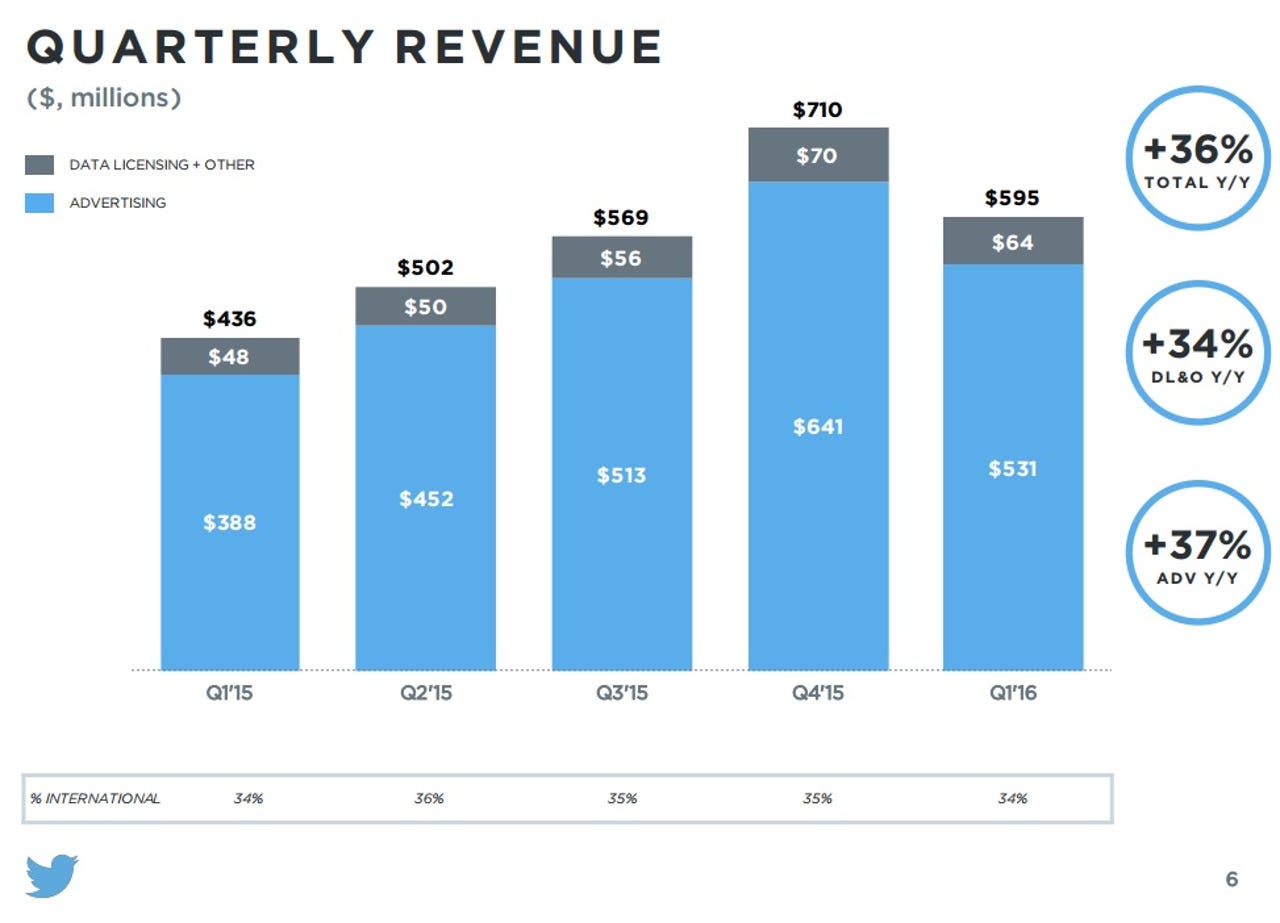Why Twitter could be attractive to an enterprise tech vendor

Microsoft's $26.2 billion purchase of LinkedIn highlights the power of data and does make you wonder how Twitter would fare in an acquisition. After all, Twitter's data could be valuable to an acquirer too.
Twitter shares surged after Microsoft bought LinkedIn, but one acquisition doesn't necessarily mean another one has to happen. For instance, LinkedIn is a stickier network in the business-to-business market. Microsoft executives noted a bevy of ways where LinkedIn data could play well with enterprise software.
Why Microsoft just bought LinkedIn: It's all about the data | Microsoft's $26.2 billion bet on LinkedIn foreshadows human resources application move | Microsoft buys LinkedIn for $26.2 billion
Twitter is a different animal and lacks LinkedIn's stickiness or ability to charge subscriptions. One common item between both companies is that their ad efforts were so-so at best.
Nevertheless, Twitter could be valuable to a few companies due to its unique characteristics. Twitter's ability to gauge public sentiment, become a breaking news venue and broadcast information easily could make it the eyes and ears for an artificial intelligence system or an analytics suite. Simply put, data matters. Credit Suisse analyst Gregg Moskowitz said in a research note:
We believe the true value of this transaction is ownership of a unique asset; LinkedIn's growing database of more than 433 million "resumes" is unlikely to ever be replicated by another company. As AI and analytics tools become the focus of the mega-tech vendors, ownership of such a useful proprietary data set could help enable Microsoft to become unrivaled in its ability to provide customer insight in this regard.
There's a similar argument for a Twitter purchase. Could Twitter be replicated (probably not)? Could Twitter garner more data licensing revenue (you bet)? Could Twitter provide real insights to an analytics platform (probably)?

Keep in mind that IBM acquired The Weather Company's B2B business largely for its data. The idea was that sensors in the field can be integrated with various services. Weather data can even make the Watson cognitive platform smarter. IBM gets that data is the currency for the future.
And that makes Twitter an interesting possibility. Would IBM pay a big premium for Twitter? Probably not. Twitter's market cap is $10 billion and it's unlikely it could get $15 billion and a 50 percent premium like LinkedIn did.
The big wrinkle in this Twitter-as-takeover-target theme is how much smarter can the social service make an enterprise system. And can't enterprise systems simply analyze the Twitter feed? Potentially, but there's nothing like first party data.
Google would be another likely acquirer for its cloud operations. Google is the only other natural buyer for LinkedIn. Twitter would add to Google's mobile advertising leverage and feed the search giant's artificial intelligence infrastructure. Facebook could also buy Twitter and fold it into its mobile reach ad programs. But Twitter's future is just as likely to be more about B2B data.
It has been clear to me for a while that Twitter's monetization efforts should revolve around business more. Dataminr's model of finding actionable items in the Twitter firehouse makes a lot more sense to me than selling sponsored Tweets.
Here's a look at Dataminr's model.
There's no reason why a company like IBM couldn't justify a Twitter purchase. Why not own the fire hose? Perhaps IBM should buy Dataminr and Twitter.
Viewed as a social network an acquirer would be wise to allow the Twitter saga to play out. Viewed through a business-to-business big data lens Twitter becomes a bit more interesting. Not everyone is convinced.
Ryan Donovan, vice president of product development for Sitecore, a Microsoft Partner, said LinkedIn has a tricky pivot if it's going to become more of a B2B asset.
With LinkedIn's successful exit to Microsoft, it has created a pressure point on Twitter. Unlike LinkedIn, which offers a veritable data goldmine for B2B scenarios, the challenge for Twitter will be to align a fundamentally B2C value proposition to a B2B market in lieu of a potential more consumer-oriented buyer. In a B2B context, Twitter's value will probably most appeal to a media-centric organization or on their technical strengths or leveraging their huge install base as an identity service.